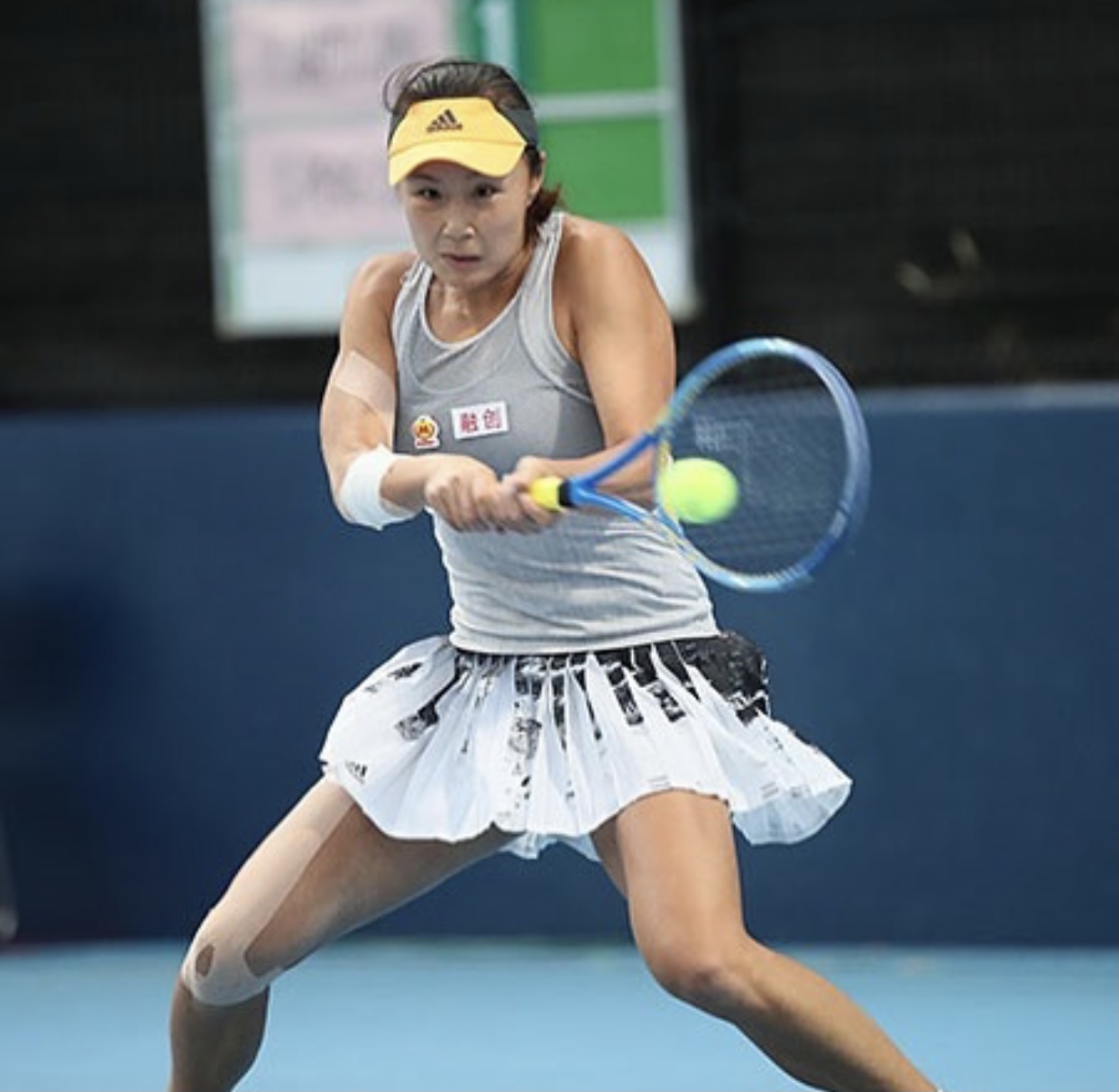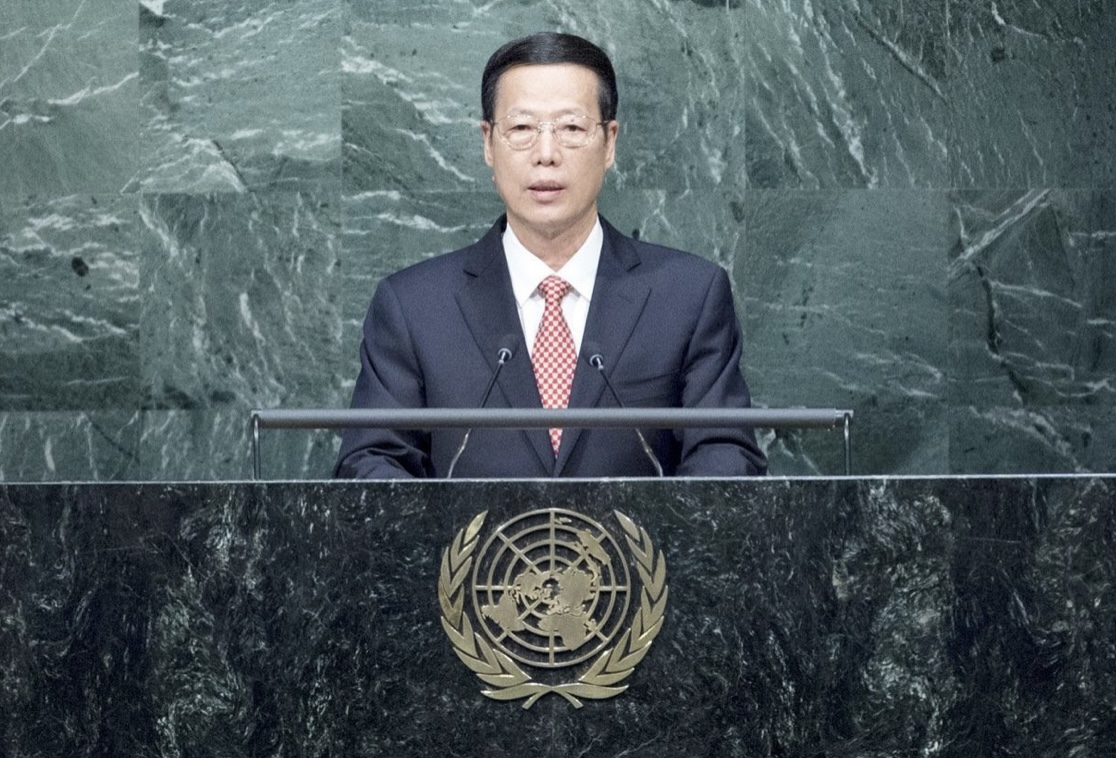Imagine waking up and finding out you are born Chinese 😩….at this point this could be anyone’s biggest nightmare.
For the past couple of years it’s a well known fact that freedom of speech literally doesn’t exist in China and literally no amount of money be you a billionaire or Trillionaire can save you from the Wrath of the Men in power in China.
Peng Shuai, one of China’s most accomplished tennis stars, disappeared from public view in early November after a rare public allegation of sexual assault against a retired top official in China’s Communist Party. The international tennis community, including many of the sport’s best-known global stars and its governing bodies, has openly questioned Chinese authorities on her whereabouts and the allegation. On Dec. 1, the Women’s Tennis Association said it was halting all of its tournaments in China because it wasn’t satisfied that Ms. Peng was safe. More than two weeks later, on Dec. 20, Ms. Peng spoke publicly for the first time since the allegation, denying to a reporter from a Singaporean newspaper that she had accused anyone of sexual assault.
Who is Peng Shuai?
Peng Shuai (pronounced “Pung Shwai”), 35 years old, is the only Chinese tennis player to have attained a world No. 1 tennis ranking—in Ms. Peng’s case, in women’s doubles, in 2014. She won women’s doubles titles in two Grand Slam tournaments, at Wimbledon in 2013 and at the French Open in 2014, winning both times with Taiwan’s Hsieh Su-wei. Ms. Peng represented China at three Summer Olympics, including the 2008 Beijing Games.
Ms. Peng began playing tennis with her uncle at 8 years old and grew up within China’s state-backed system, in which the state provides housing, training and medical care. In the 2000s, Ms. Peng was among the first Chinese tennis players to break free of the system and hire foreign coaches on her own, though she later returned to the system after a series of reforms. Because the state had invested in her career, Ms. Peng was required to contribute an unspecified portion of her prize winnings to the state.
Where is Peng Shuai?
On the evening of Nov. 2, a post on Peng Shuai’s verified social-media account made a sexual-assault allegation against former Chinese Vice Premier Zhang Gaoli. The post, on China’s Twitter -like Weibo platform, said that Ms. Peng had an on-and-off relationship with Mr. Zhang lasting for some years that was sometimes consensual and sometimes involved coercion, including forced sex. It disappeared after about 20 minutes. Although Ms. Peng’s social-media account remains online, its comments function has been disabled and her name blocked in searches.
Nearly two weeks later, on Nov. 14, Steve Simon, chairman of the WTA, said the organization hadn’t been able to reach Ms. Peng after repeated attempts, and called for an investigation into her allegation.
On Nov. 17, China’s state-run broadcaster published what it said was an email sent by Ms. Peng to the WTA. The screenshot of the message said that the sexual-assault allegation is untrue and that “everything is fine.” Mr. Simon subsequently said the email raised more concerns about her safety and whereabouts.
On Nov. 19, a reporter at China’s state broadcaster posted photos that he said had been newly shared on Ms. Peng’s private social-media account on another platform, and that appeared to show Ms. Peng at home, playing with her cat and posing in front of a framed photograph of Winnie the Pooh. The Wall Street Journal verified that such photos had been posted on the social-media account but couldn’t determine when or under what circumstances the photographs had been taken.
On Nov. 21, she appeared at Beijing’s National Tennis Center as an official guest at a youth match organized by the state-backed China Open, according to photos and a video posted on the tournament’s official Weibo account. The night before on Twitter, state media journalists shared a video of her at a restaurant listening to China Open executives talking about the same match over dinner.
Hours after the Beijing event, Ms. Peng appeared in a videoconference with International Olympic Committee President Thomas Bach and IOC Athletes’ Commission chair Emma Terho.
The IOC said that Ms. Peng was safe at home in Beijing and asked for privacy after the sexual-assault accusation, which the organization didn’t address.
“I was relieved to see that Peng Shuai was doing fine, which was our main concern. She appeared to be relaxed. I offered her our support and to stay in touch at any time of her convenience, which she obviously appreciated,” Ms. Terho said.
On Dec. 2, a day after the WTA said it was halting events in China, the IOC said it had held a second call with Ms. Peng, which it said confirmed the organization’s impressions from the first call. The IOC has declined public requests for it to release footage of its calls with Ms. Peng.
On Dec. 20, nearly 50 days after the Weibo post appeared, Ms. Peng broke her silence. In an interview with Singapore’s Lianhe Zaobao, recorded on a reporter’s smartphone, she denied accusing anyone of sexual assault and suggested that concern for her safety stemmed from misunderstandings. The tennis star didn’t deny any specific details in the post. The reporter didn’t ask her about her relationship with Mr. Zhang or about the description in the Weibo post of him coercing her into having sex with him.
Requests for comment sent to Ms. Peng’s Weibo account and her agency haven’t been answered.
How has the international community responded to Peng Shuai’s case?
The WTA’s Nov. 14 call for China to investigate Ms. Peng’s allegation was quickly echoed by the Association of Tennis Professionals, the world governing body for men’s tennis.
Many of tennis’s most storied figures, including Billie Jean King and Martina Navratilova, as well as current players such as Naomi Osaka, have spoken out in support of Ms. Peng and the WTA’s call for an investigation. “We must not stay silent,” Serena Williams told her over 10 million followers on Twitter.
Beyond the world of tennis, a number of athletes—including Spanish soccer star Gerard Piqué, with his more than 20 million Twitter followers—have tweeted out the hashtag #WhereIsPengShuai.
Meanwhile, in Washington, White House press secretary Jen Psaki on Nov. 19 called on China to provide “independent and verifiable proof” of Ms. Peng’s whereabouts and safety, adding: “We’re deeply concerned.”
Members of Congress have begun to link concerns about Ms. Peng’s situation to the coming Winter Olympics in Beijing in February. Sen. Tom Cotton, an Arkansas Republican, on Nov. 18 called for a total U.S. boycott of the Games, citing among his reasons his fears that the U.S. couldn’t keep athletes safe from Chinese surveillance “or even hostage-taking.”
The International Olympic Committee declined to comment publicly, saying it believed in what it called “quiet diplomacy.”
In Geneva, United Nations Human Rights Office spokesperson Liz Throssell on Nov. 19 called for proof of Ms. Peng’s well-being and urged a transparent investigation into the sexual-assault allegation.
The WTA responded to Ms. Peng’s Dec. 20 interview with a statement saying the video footage didn’t ease its concerns. The organization reiterated its call for a “a full, fair and transparent investigation, without censorship, into her allegation of sexual assault.”
How has Beijing responded?
Within the country, the sexual-assault allegation has been largely ignored or played down. Foreign Ministry spokespeople have repeated on several occasions that they are unaware of it, though questions and answers about Ms. Peng have been omitted from official transcripts published by the ministry.
On China’s tightly regulated internet, some discussion of Ms. Peng’s situation has disappeared. The email attributed to Ms. Peng was published only on the state broadcaster’s international arm, suggesting that it was intended for an audience outside China. Several employees of Chinese state media have used Twitter, which is blocked in China, to criticize expressions of global concern over Ms. Peng, in one instance accusing the WTA of coercing Ms. Peng into supporting its attack on China’s system.
Who is the retired official named in the sexual-assault accusation?
Zhang Gaoli is a former vice premier and retired member of the Communist Party’s ruling Politburo Standing Committee. He kept a low-profile while in office, but was regarded as a powerful and skilled technocrat. He was tasked with handling some of Beijing’s highest priorities, which included managing China’s bid for the 2022 Winter Games.
IOC and Chinese government documents indicate that Mr. Zhang led a steering group to supervise the bid. Chinese state media photos show Mr. Zhang shaking hands with the IOC’s Mr. Bach during a meeting in Beijing in 2016.
Though he is known for his wooden appearance in public, those who have met him describe him as cracking jokes behind closed doors. According to the post on Ms. Peng’s social-media account, Mr. Zhang and the tennis player had sex once a decade ago, when the official was the Communist Party boss in the port city of Tianjin, but he broke off communication after transferring to Beijing. After he retired, he called her to his home and coerced her into having sex again, according to the post. After that, the two began a three-year affair that eventually unraveled.
What does this say about China’s #MeToo movement?
The sexual-assault allegation is the first to be publicly leveled at a senior member of China’s ruling party. In recent years, other allegations of sexual misconduct have been made toward figures in Chinese academic and entertainment spheres. In many cases, those making the accusations have ended up being the targets of threats and defamation cases by the men they accused. Women in other countries have also faced defamation lawsuits after making accusations.
The Communist Party itself has acknowledged sex scandals involving its top officials, though typically only after they have been found guilty on corruption or other charges. While the outcome is difficult to predict, government insiders say, the party rarely puts top-level officials under investigation, and never for sexual misconduct alone.






